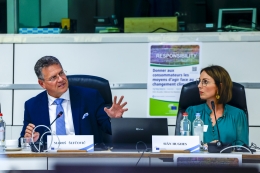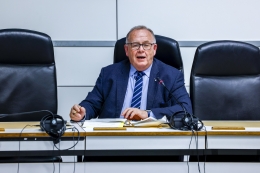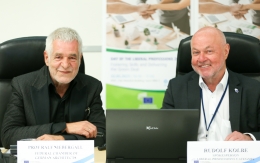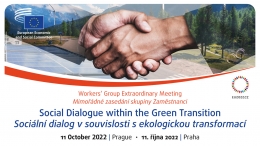European Economic
and Social Committee
Green Deal europeo
L'11 dicembre 2019 la Commissione europea ha lanciato il Green Deal europeo, che rafforza l'impegno dell'UE ad affrontare le sfide legate al clima e all'ambiente, ovvero il compito che definisce l'attuale generazione. L'obiettivo del Green Deal europeo è trasformare l'UE in un'economia moderna, efficiente sotto il profilo delle risorse e competitiva, garantendo che:
- le emissioni nette di gas a effetto serra siano azzerate entro il 2050;
- la crescita economica sia dissociata dall'uso delle risorse;
- nessuna persona e nessun territorio siano lasciati indietro.
Per realizzare il Green Deal europeo, l'UE sta attuando un pacchetto completo di iniziative, che comprende proposte politiche e legislative nonché lo sviluppo e la modernizzazione degli strumenti di finanziamento.
Il CESE ha chiesto un "Green e Social Deal", ossia un Green Deal che inglobi anche la dimensione sociale, sottolineando lo stretto legame tra questa iniziativa e la giustizia sociale. È essenziale ascoltare la voce di tutte le parti interessate al fine di promuovere le imprese sostenibili e competitive di domani in un ambiente sano.
Il Green Deal europeo ha posto un forte accento sugli investimenti e sul finanziamento della transizione verde e sostenibile. Il Green Deal è l'ancora di salvezza dell'Europa per uscire dalla pandemia di COVID-19. Un terzo dei 1 800 miliardi di EUR di investimenti del piano per la ripresa NextGenerationEU e del bilancio settennale dell'UE è destinato a finanziare il Green Deal. Questo aumento delle opportunità di finanziamento mira a far sì che la crisi diventi un'opportunità trasformativa per il futuro dell'Europa.
Il CESE svolge un ruolo cruciale nel monitorare l'attuazione delle iniziative e delle azioni del Green Deal europeo. Il CESE elabora pareri e organizza attività (cfr. menù a sinistra di questa pagina) per garantire che le istituzioni dell'UE tengano conto dei punti di vista della società civile organizzata e che le iniziative del Green Deal siano coerenti con le diverse situazioni economiche, sociali e civiche sul campo.
Data la sua natura trasversale e onnicomprensiva, il Green Deal europeo rientra nelle competenze di tutte le sezioni del CESE e della CCMI.





